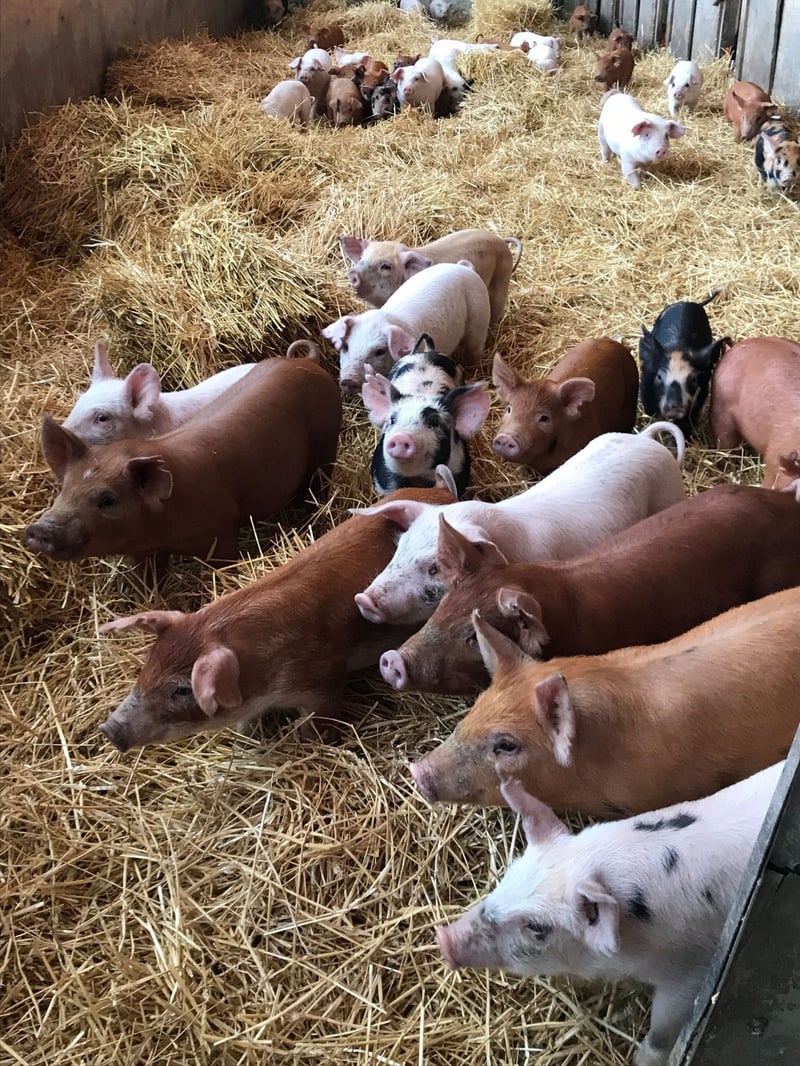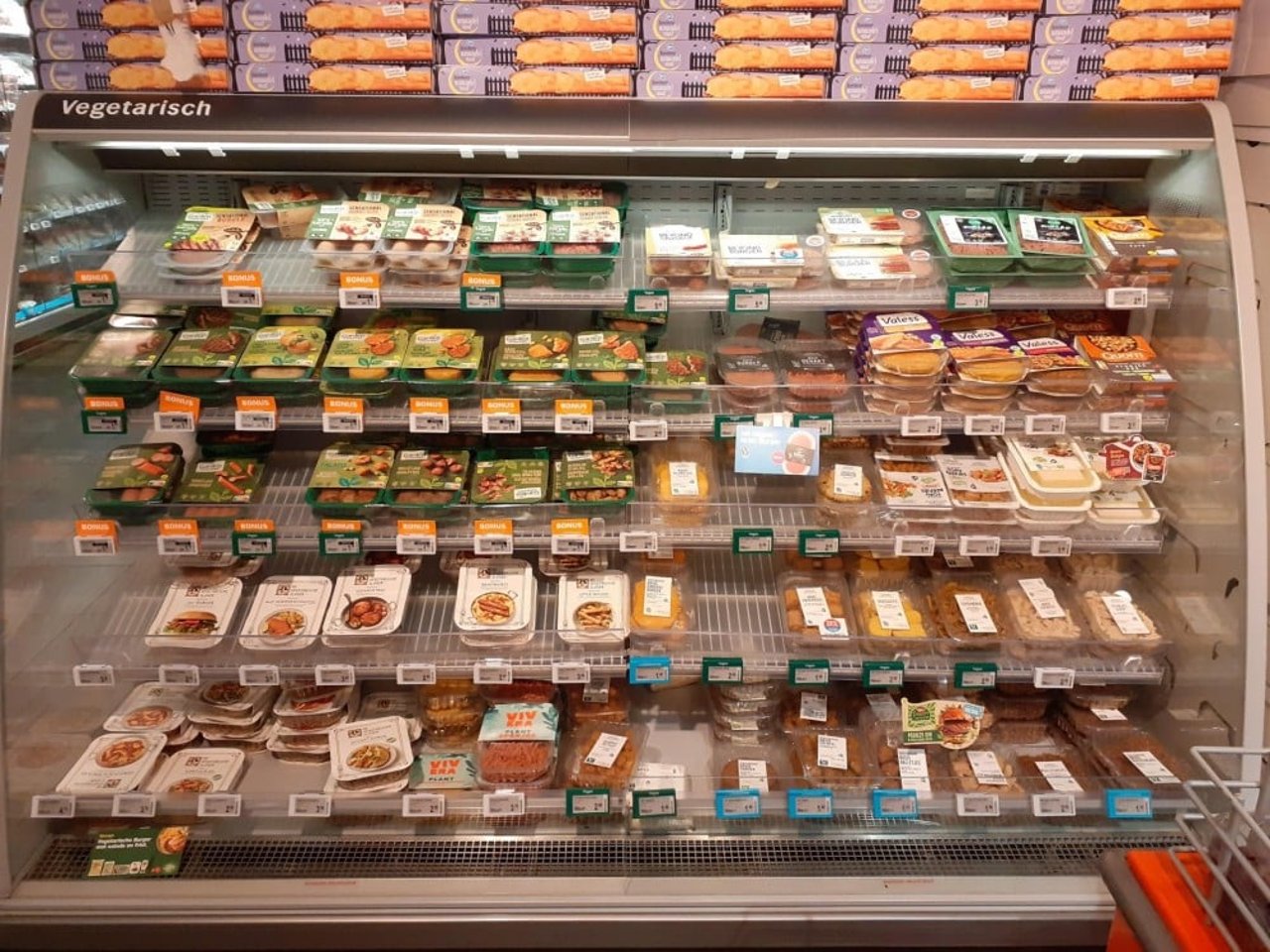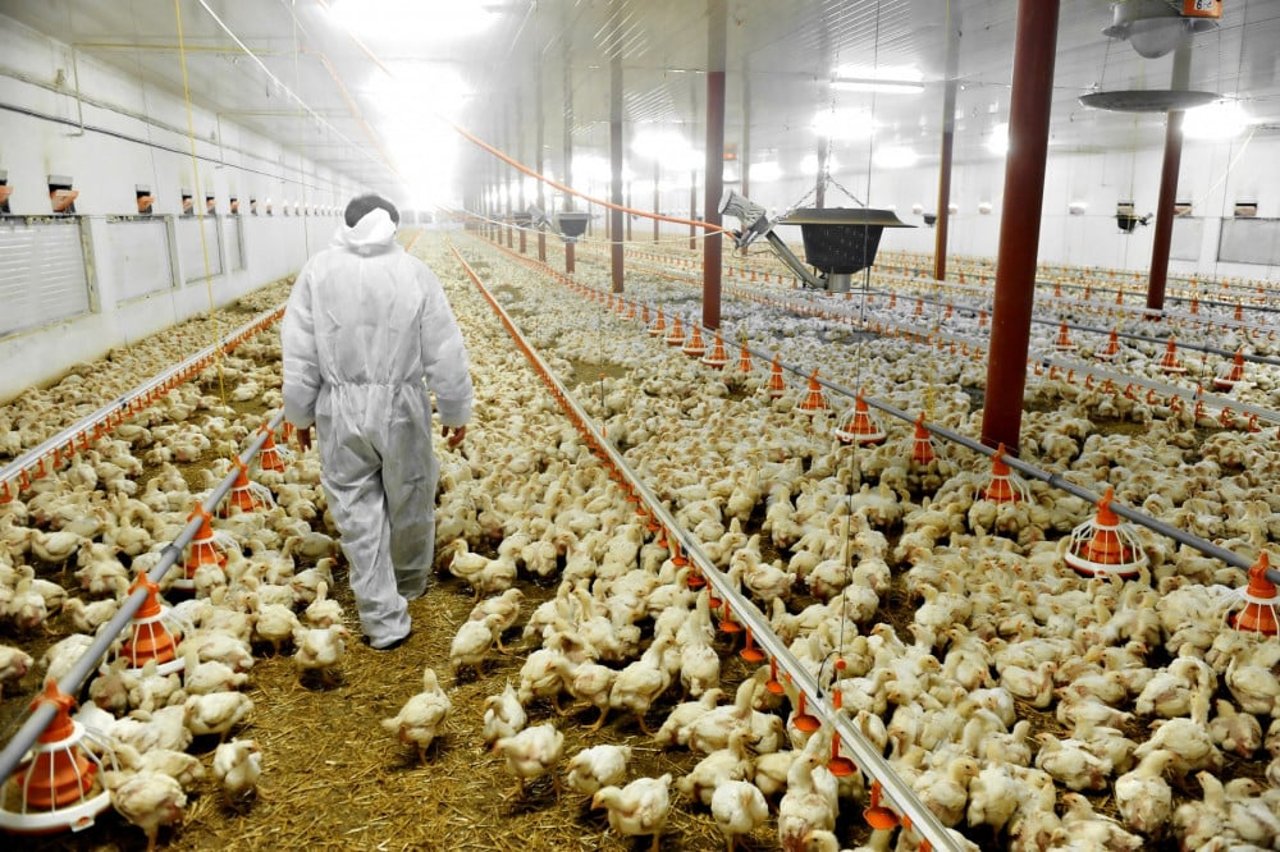
Better for the environment and farmed animals – is cultured meat really a ‘win-win’?
Blog
A recent study on cultured meat highlights the technology’s environmental benefits over conventionally farmed meat. Here’s how it could also be a game-changer for the billions of animals farmed for food each year.
Eating our way to disaster
Our diets have a profound impact on the wider world. Whether we’re talking about food miles, food waste or animal welfare, there is a wide range of issues to contend with when considering the most sustainable food choices.
Food has rightly become a key talking point in conversations around sustainability, with meat in particular, due to the livestock industry’s heavy demand for crops, water, energy and land. Companies and governments are starting to join civil society in acknowledging that we can’t have a sustainable future without addressing the current unsustainability of diets around the world.
Later this year, the UN Sustainable Food Summit will shine a spotlight on this issue in the run up to the COP26 climate summit.
The solutions exist and are developing rapidly
The solutions to unsustainable meat production are many. Plant-based alternatives to meat are massive right now. In the last few months alone, we’ve seen high-profile brand-tie ups between Beyond Meat and food giants PepsiCo and McDonald’s, which will push the awareness of and interest in plant-based proteins into the stratosphere.
Meat alternatives in a supermarket fridge
Sure, it’s not necessarily healthy eating but that’s missing the point. The opportunity here is to shift choices from unsustainable, factory farmed meat to more sustainable plant-based alternatives, not to get everyone eating whole vegetables instead of burgers.
The rise of cultured meat
Another solution that’s dominated the headlines is cultured or lab-grown meat. Taking cells from live animals and growing them in bioreactors to produce real meat, cultured meat is touted as an innovative alternative to meat produced by slaughtering billions of animals.
There are questions that have rightly been asked about cultured meat:
- Will consumers get over the ‘lab-grown’ factor (arguably a far less scary prospect that your average factory farm!)?
- Can it compete on price? (it looks possible, and costs have come down substantially in the last few years since the ‘£250,000 test-tube burger’ was famously fried in front of a group of hungry and intrigued journalists).
- And will the energy-hungry bioreactors make cultured meat less environmentally efficient than once believed?
This final question was tackled in a study released last week by the Good Food Institute and GAIA in partnership with consultancy CE Delft. The paper specifically looks at the environmental impact of cultured meat versus conventional meat, and spans a range of issues including global warming, land use and water consumption.
The study finds that plant-based meat alternatives are, as expected, the environmental winners. This is followed by cultured meat – if produced with green energy, such as wind, tidal and solar.
Chickens on a factory farm. Image credit: iStock.com/roibu
Following this are chicken, pork and then cultured meat, if produced by polluting fossil-fuel based energy sources, such as coal, oil and gas.
Finally, we have dairy and beef cattle as the animals with the highest environmental burden.
The livestock industry seeks to maintain the status quo
Based on these results, some might spin that chicken and pork have a lower environmental impact than cultured meat, which could sadly create a rush for meat from these animals, who are factory farmed in their billions and endure some of the worst cruelty of all farm animals. This is compounded by the renewed desire for leaner white meat.
A recent opinion piece from the European meat lobby – European Livestock Voice – paints a scene of environmentally friendly livestock production in Europe right now and suggests that cultured meat would lead to a society in which we’re "disconnected from nature and rurality".
However, we’re already profoundly disconnected from our natural world, which is easily evidenced by the fact that we raise 60 billion farm animals a year in barren warehouses and, in the worst cases, cages.
This isn’t farming that previous generations would recognise in any way.
European Livestock Voice claims that "if we truly want to make a difference in terms of the climate impact of meat protein production, then we need to invest in innovation for livestock farming."
Sadly, factory farming methods were seen as technological innovations 50 years ago, and engineering can only take us so far.
Farmed animals are living, breathing beings and don’t belong in cramped, barren environments, regardless of how many computers may be powering their air quality or drinking water delivery.
Envisioning a sustainable and kind future
It’s exciting to see that cultured meat can more than compete with conventional meat on environmental grounds. Putting environmental impacts to one side, what’s clear is that if successful, lab meat can be part of the solution to prevent billions of animals suffering in factory farms every year.
By coupling this with small amounts of high welfare meat, if someone wishes to eat this, it’s possible to envisage a food system that is both environmentally sustainable and kind. That’s true innovation.
Farmed animals are living, breathing beings and don’t belong in cramped, barren environments, regardless of how many computers may be powering their air quality or drinking water delivery.

